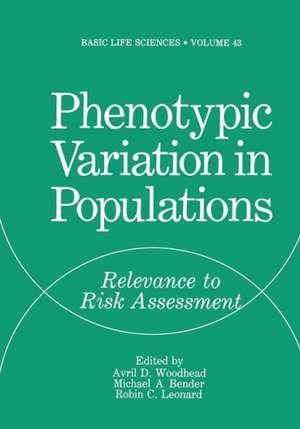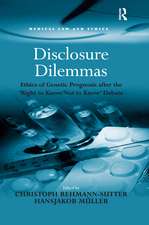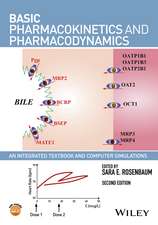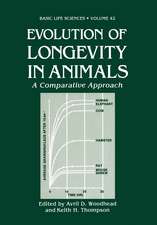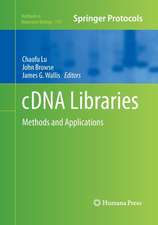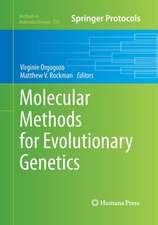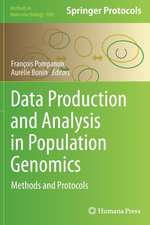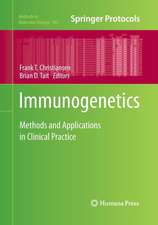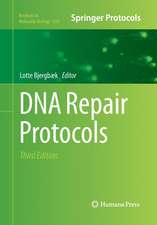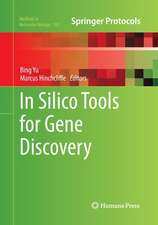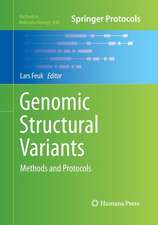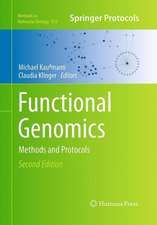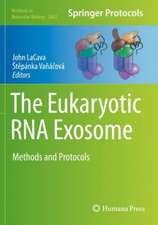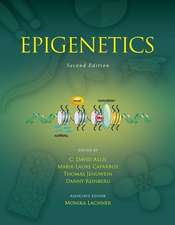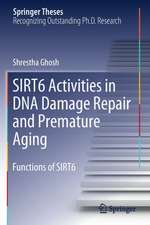Phenotypic Variation in Populations: Relevance to Risk Assessment: Basic Life Sciences, cartea 43
Editat de Avril Woodheaden Limba Engleză Paperback – 14 mar 2013
Din seria Basic Life Sciences
- 5%
 Preț: 378.07 lei
Preț: 378.07 lei - 15%
 Preț: 647.73 lei
Preț: 647.73 lei - 5%
 Preț: 383.55 lei
Preț: 383.55 lei - 15%
 Preț: 649.06 lei
Preț: 649.06 lei -
 Preț: 401.03 lei
Preț: 401.03 lei - 5%
 Preț: 730.71 lei
Preț: 730.71 lei - 5%
 Preț: 736.92 lei
Preț: 736.92 lei - 5%
 Preț: 726.68 lei
Preț: 726.68 lei - 5%
 Preț: 729.26 lei
Preț: 729.26 lei - 18%
 Preț: 960.61 lei
Preț: 960.61 lei - 5%
 Preț: 375.85 lei
Preț: 375.85 lei - 5%
 Preț: 744.05 lei
Preț: 744.05 lei - 5%
 Preț: 740.58 lei
Preț: 740.58 lei - 5%
 Preț: 733.82 lei
Preț: 733.82 lei - 5%
 Preț: 719.38 lei
Preț: 719.38 lei -
 Preț: 397.59 lei
Preț: 397.59 lei - 5%
 Preț: 390.85 lei
Preț: 390.85 lei - 15%
 Preț: 657.57 lei
Preț: 657.57 lei - 5%
 Preț: 382.99 lei
Preț: 382.99 lei - 5%
 Preț: 400.56 lei
Preț: 400.56 lei - 5%
 Preț: 739.69 lei
Preț: 739.69 lei - 15%
 Preț: 657.25 lei
Preț: 657.25 lei - 18%
 Preț: 959.67 lei
Preț: 959.67 lei -
 Preț: 401.24 lei
Preț: 401.24 lei - 15%
 Preț: 658.88 lei
Preț: 658.88 lei - 5%
 Preț: 387.39 lei
Preț: 387.39 lei - 5%
 Preț: 376.95 lei
Preț: 376.95 lei - 5%
 Preț: 768.39 lei
Preț: 768.39 lei - 5%
 Preț: 735.83 lei
Preț: 735.83 lei - 15%
 Preț: 651.19 lei
Preț: 651.19 lei - 18%
 Preț: 1228.47 lei
Preț: 1228.47 lei - 15%
 Preț: 595.36 lei
Preț: 595.36 lei - 5%
 Preț: 736.39 lei
Preț: 736.39 lei - 5%
 Preț: 730.55 lei
Preț: 730.55 lei - 18%
 Preț: 960.30 lei
Preț: 960.30 lei - 5%
 Preț: 738.93 lei
Preț: 738.93 lei - 15%
 Preț: 662.16 lei
Preț: 662.16 lei - 15%
 Preț: 663.60 lei
Preț: 663.60 lei -
 Preț: 395.25 lei
Preț: 395.25 lei - 5%
 Preț: 739.13 lei
Preț: 739.13 lei - 15%
 Preț: 639.59 lei
Preț: 639.59 lei - 5%
 Preț: 377.52 lei
Preț: 377.52 lei - 18%
 Preț: 1241.10 lei
Preț: 1241.10 lei - 18%
 Preț: 1233.69 lei
Preț: 1233.69 lei
Preț: 721.40 lei
Preț vechi: 759.37 lei
-5% Nou
Puncte Express: 1082
Preț estimativ în valută:
138.05€ • 143.26$ • 115.39£
138.05€ • 143.26$ • 115.39£
Carte tipărită la comandă
Livrare economică 15-29 martie
Preluare comenzi: 021 569.72.76
Specificații
ISBN-13: 9781468454628
ISBN-10: 1468454625
Pagini: 320
Ilustrații: X, 305 p. 27 illus.
Dimensiuni: 178 x 254 x 17 mm
Greutate: 0.56 kg
Ediția:Softcover reprint of the original 1st ed. 1988
Editura: Springer Us
Colecția Springer
Seria Basic Life Sciences
Locul publicării:New York, NY, United States
ISBN-10: 1468454625
Pagini: 320
Ilustrații: X, 305 p. 27 illus.
Dimensiuni: 178 x 254 x 17 mm
Greutate: 0.56 kg
Ediția:Softcover reprint of the original 1st ed. 1988
Editura: Springer Us
Colecția Springer
Seria Basic Life Sciences
Locul publicării:New York, NY, United States
Public țintă
ResearchCuprins
Relevance of Phenotypic Variation in Risk Assessment: The Scientific Viewpoint.- Human Genetic Individuality and Risk Assessment.- Fragile Sites, Mutagens and Genomic Rearrangements in Cancer.- Sources and Significance of Variation as Measured in Human Populations.- New Technologies for Studying Human Genetic Variation.- Genes Encoding Drug-Metabolizing Enzymes: Possible Role in Human Disease.- Epidemiologic Evidence for Genetic Variability in the Frequency of Cancer: Ethnic Differences.- Phenotypic Variation within Genetically Homogeneous Populations: Responsiveness to Toxicants.- Variability in Anthropometric Traits in Twins and Their Families.- Variation in Expression of Congenital Cardiovascular Malformations within and among Families.- The Use of Polymorphic Markers to Detect Genetic Variability.- The Arrogance of Intellectual Power.- Risk Assessment, Regulation, and the Limits of Science.- Variability in Diet and its Relation to Risk in Ethnic and Migrant Groups.- Cancer Risk and Lifestyle: Cancer among Mormons from 1967–1975.- Gene-Environmental Interaction as a Cause of Human Variation.- Risk Assessment: Short-Term Exposure at Various Ages.- Variability in Lifespan Functional Capacity.- Constitutional, Somatic Genetic and Environmental Aspects of the Phenotypic Diversity of Aging in Human Subjects.- Variability in Cognitive Function in the Elderly: Implications for Societal Participation.- A Legal Viewpoint on the Relevance of Phenotypic Variation to Risk Assessments.- Comparative Risk Measures for Heterogeneous Populations.- Risk Assessment: Extrapolation to Individual Risk.- Differential Susceptibility: Implications for Epidemiology, Risk Assessment, and Public Policy.- Efficiency, Liberty and Justice in Screening for Phenotypic Variation.- Variation inIndividual Response—Will It Really Affect the Regulatory Response?.- Fear, Fiat and Fiasco: Causation in Cancer Risk Assessment.- Participants.
